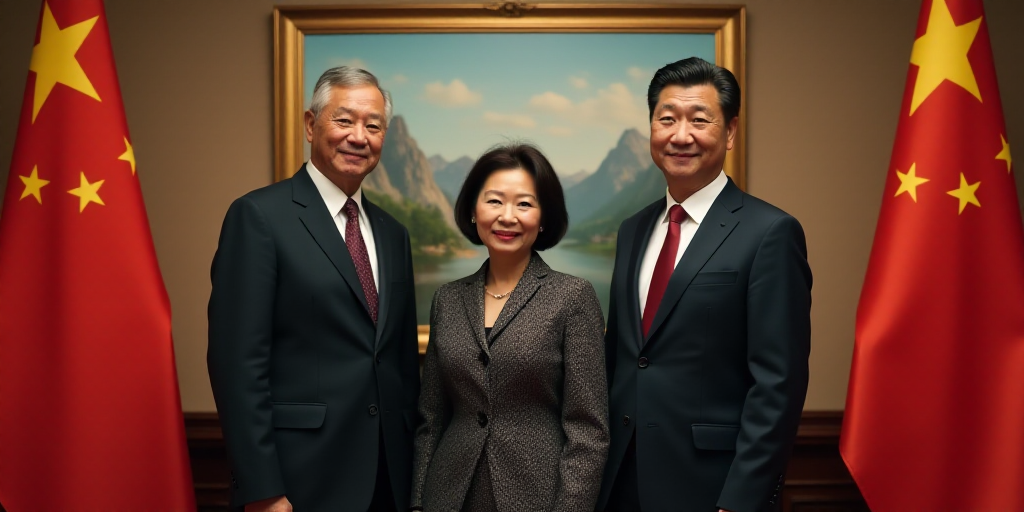Historical Complexity Between the EU and China
The European Union (EU) and China have historically maintained a complex relationship, as outlined in the EU-China Strategic Outlook for 2019 by the European Commission. The document described China as a “strategic partner,” but also acknowledged it as an “economic competitor” and a “systemic rival promoting alternative governance models.”
Escalating Tensions Between the Two Powers
Since the publication of these perspectives, tensions between the EU and China have only intensified. Recent disagreements over China’s role in the origin of the COVID-19 pandemic and its stance on the war in Ukraine have further strained their relationship.
Trump’s Trade War: A Catalyst for EU-China Rapprochement
The return of Donald Trump to the White House may alter the dynamics between these two powers. Trump’s ongoing trade war, targeting both the EU and China, could push them towards closer cooperation to better withstand Washington’s pressures. Analysts now point towards a “reset” in EU-China relations, though the situation remains unclear.
Doubts Surrounding a Sudden Reset
The concept of this sudden “reset” is questionable at least in two aspects. First, the EU’s desire to renew its relationship with China is not solely a result of the new U.S. administration’s policies; it has been ongoing for at least two years, with Ursula von der Leyen and Emmanuel Macron visiting China in April 2023 with the explicit goal of “restarting” relations.
Second, the EU had already considered a strategic rebalancing towards China over the U.S. in 2017, during Trump’s first administration, though this initiative did not yield significant results.
To properly assess the likelihood of a substantial change in EU-China relations, two questions must be addressed: To what extent is this change genuine rather than rhetorical? And what concessions are each party willing to make to strengthen their bond?
Obstacles to Cooperation
China perceives the EU as weak and divided, and despite European aspirations, it does not take the bloc seriously. Consequently, China believes that a few declarations and symbolic gestures—such as lifting sanctions imposed on EU lawmakers and their families in response to the EU’s human rights sanctions against China over Xinjiang—will suffice to attract the EU, desperate due to U.S. policies.
This attitude is confirmed by China’s recent appointment of Lu Shaye, known for his aggressive diplomatic style as ambassador to France, as a special envoy for EU relations.
For Brussels, several issues hinder the possibility of a reset in relations with China. These include China’s close ties with Russia, strengthened by Xi Jinping’s attendance at the Victory Day military parade in Moscow on May 9. China’s contribution, both through action and omission, to Russia’s invasion of Ukraine is another significant obstacle.
The diplomatic tension is evident at the highest levels of the EU. Kaja Kallas, High Representative for Foreign Affairs and Security Policy, has unequivocally stated that “China is the main enabler of Russia’s war.”
Strategic Adjustment
In its dealings with China, the EU should adopt a pragmatic and calculated approach that allows it to partially offset problems stemming from the Trump administration’s trade policy, without abandoning its values and interests.
Moreover, the EU remains aware of the risks associated with Chinese investment in strategic and high-tech sectors, as well as those linked to sectors and activities that could jeopardize data protection.
What the EU is witnessing, therefore, is not a radical change but a tactical adjustment. The idea is to relax the language—the Commission now speaks of a “transactional” relationship and a “constructive engagement” with China—and build a relationship that gives Brussels more options and maneuvering room in its dealings with the U.S.
Key Questions and Answers
- Q: Is the EU-China relationship change genuine or merely rhetorical? A: The sincerity of the change remains questionable, as it could be more about adapting to external pressures rather than a genuine shift in policy.
- Q: What concessions are each party willing to make? A: China may believe that symbolic gestures are sufficient to attract the EU, while Brussels grapples with issues like Chinese investment in strategic sectors and its role in the Russia-Ukraine conflict.
- Q: What are the obstacles to EU-China cooperation? A: Obstacles include China’s close relationship with Russia, its contribution to the Russia-Ukraine conflict, and EU concerns over Chinese investment in strategic sectors.






